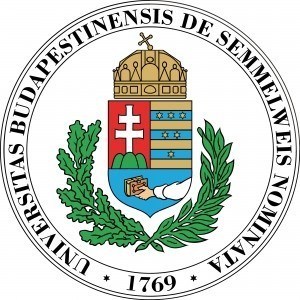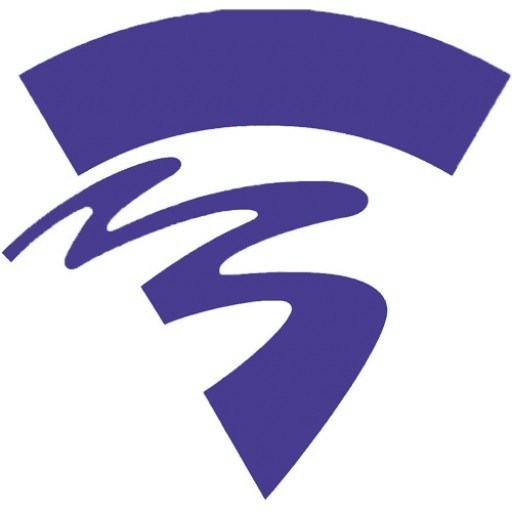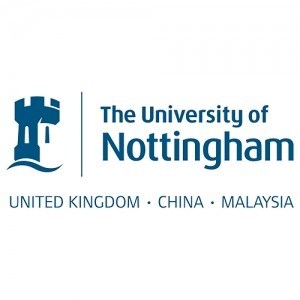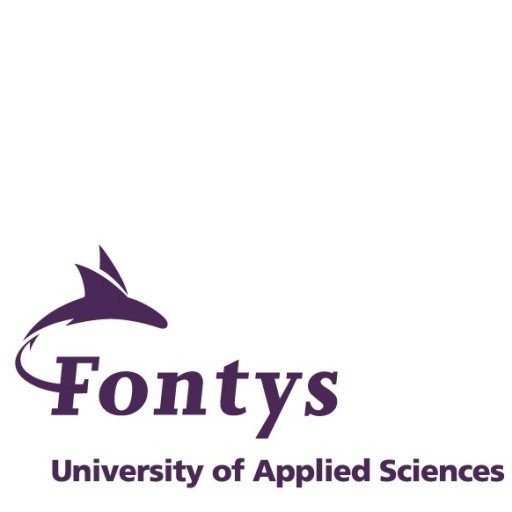Photos of university
The English Language and Literature program at Eötvös Loránd University offers an in-depth exploration of the English language, its structure, history, and usage, combined with comprehensive studies in English and American literature. The program aims to develop students' linguistic skills, critical thinking, and cultural awareness, preparing graduates for diverse careers in translation, teaching, publishing, media, international relations, and further academic research. Throughout the course, students engage with a variety of linguistic theories, historical developments of the English language, and detailed analyses of literary texts spanning from the medieval period to contemporary works. The curriculum includes modules on phonetics, syntax, semantics, and pragmatics, alongside courses in literary theory, cultural studies, and comparative literature. Students also have the opportunity to participate in language practice and writing workshops, enhancing their communication skills both in spoken and written English. The program emphasizes a multidisciplinary approach, encouraging students to connect linguistic proficiency with literary interpretation and cultural understanding. Practical skills are complemented by theoretical knowledge, ensuring graduates are well-equipped to analyze complex texts, understand language variation and change, and appreciate the cultural contexts of literary works. The program is delivered by experienced faculty members who are active researchers in linguistics and literature, providing students with a rich academic environment conducive to innovative thinking and scholarly excellence. As part of their studies, students may participate in internships, exchange programs, and research projects, broadening their professional and cultural horizons. Graduates of the program are prepared to pursue careers in education, translation, editing, research, and many fields where advanced language and literary skills are essential. The program is designed for students interested in exploring the richness of the English language and literature, fostering a lifelong appreciation for linguistic diversity and literary creativity. Whether starting a career or continuing academic pursuits, students will benefit from the comprehensive education and international orientation provided by the Eötvös Loránd University.
The English Language and Literature MA program at Eötvös Loránd University offers a comprehensive curriculum designed to deepen students' understanding of the English language, its literature, and its cultural contexts. The program aims to develop critical analytical skills, enhance linguistic competence, and foster a nuanced appreciation for the diverse voices within English-speaking countries. Throughout the course, students engage with a wide range of literary texts spanning from the medieval period to contemporary works, allowing them to explore different genres, themes, and historical settings. The coursework includes close textual analysis, theoretical frameworks, and interdisciplinary approaches, equipping students with the tools necessary for scholarly research and literary criticism.
In addition to literature, the program emphasizes the study of the English language itself, covering areas such as phonetics, syntax, semantics, and discourse analysis. Students learn to analyze linguistic data, understand language variation, and examine language change over time. The program also offers electives in related fields such as cultural studies, film studies, and translation, encouraging interdisciplinary exploration and providing a broader perspective on the English-speaking world. Practical skills such as academic writing, presentation, and research methodology are integral parts of the curriculum, preparing graduates for careers in academia, education, publishing, media, and international communication.
The program is characterized by small class sizes and interactive seminars, fostering an engaging learning environment where students can actively participate in discussions, collaborate on projects, and receive personalized feedback from faculty members. Opportunities for international exchange and internships are also available, reflecting the university’s commitment to global education. Graduates of the program will have a solid foundation for pursuing doctoral studies or entering professional fields that require advanced language and literary skills. Overall, the English Language and Literature MA at Eötvös Loránd University provides an in-depth academic experience that combines theoretical knowledge with practical application, empowering students to become well-rounded scholars and professionals in the field of English studies.
Program requirements typically include a combination of academic prerequisites, language proficiency, documentation, and application procedures. Applicants are generally expected to have completed secondary education or an equivalent qualification to be eligible for admission. Some programmes may specify specific subject requirements or minimum grades, especially for specialized disciplines. Proficiency in English is often a prerequisite, with acceptable test scores such as IELTS or TOEFL; for example, an IELTS score of at least 6.0 or a TOEFL score of 80+ may be required, though exact requirements can vary depending on the programme. Applicants must submit official transcripts, a motivation letter, and sometimes letters of recommendation or a CV outlining relevant experience. Certain programmes may also require a portfolio, entrance exam, or interview as part of the selection process. Additionally, applicants must complete the university's online application form and pay any applicable application fees. International students may need to provide proof of visa eligibility or other immigration documentation, and it is recommended they verify specific requirements well in advance of application deadlines. For specific programmes, additional criteria may include relevant work experience, research proposals, or language skills. It is advisable to consult the official university website for detailed and updated information regarding admission requirements for each particular degree programme.
The financing of the English language program at Eötvös Loránd University is structured to ensure accessibility and sustainability through various funding sources. Primarily, the program is financed by state funding provided by the Hungarian government, which allocates resources to support higher education initiatives deemed vital for the academic and cultural development of the country. This public funding covers a significant portion of the operational costs, including faculty salaries, teaching materials, and administrative expenses, ensuring the program maintains high-quality standards and continuous improvement.
In addition to state support, the program benefits from tuition fees paid by enrolled students. Tuition fees are generally set in accordance with university regulations and are subsidized to make education affordable while also contributing to the financial stability of the program. For international students, fees are typically higher, reflecting the university's policy to balance internal funding streams. These fees are used to cover additional costs that are not entirely funded through public sources, such as specialized workshops, language labs, and extracurricular programs.
Eötvös Loránd University also seeks funding from European Union grants and research funds, which support curriculum development, faculty exchange programs, and innovative teaching projects. These external sources enable the program to incorporate the latest pedagogical practices and advanced technological tools, enhancing the overall quality of education.
Furthermore, the university encourages partnerships with private institutions, language training companies, and cultural organizations that provide sponsorships or grants to support student exchange programs, internships, and language practicums. Such collaborations expand opportunities for students and contribute to the program’s financial health.
Finally, the university occasionally receives donations and endowments from alumni and benefactors committed to promoting language education and cultural exchange. These voluntary contributions supplement the program’s budget and facilitate scholarships for talented students who may face financial difficulties.
Overall, the combination of public funding, tuition income, EU grants, private partnerships, and donations ensures the financial stability and continuous development of the English language program at Eötvös Loránd University, allowing it to serve a diverse student body and uphold its reputation for academic excellence.
The English language programme at Eötvös Loránd University is designed to provide students with a comprehensive understanding of English linguistics, literature, and culture. The curriculum emphasizes the development of advanced language skills, critical thinking, and analytical abilities necessary for various professional fields, including teaching, translation, interpretation, research, and cultural analysis. Students are immersed in diverse courses that cover topics such as English phonetics, syntax, semantics, and pragmatics, alongside literary studies that span from medieval to contemporary English literature. The programme also offers opportunities for students to explore intercultural communication, translation studies, and teaching methodologies, preparing them for international careers or further academic pursuits.
The programme is structured to foster both theoretical knowledge and practical skills. Students engage in language practice sessions, participate in seminars, discuss literary texts, and complete research projects. Eötvös Loránd University emphasizes a balance between academic excellence and practical application, ensuring graduates are equipped with linguistic expertise and the ability to apply their knowledge in real-world contexts. The university boasts experienced faculty members, many of whom are actively involved in research and international collaborations, contributing to a dynamic learning environment.
In addition to core coursework, students have access to various extracurricular activities, including language clubs, cultural events, and internships, which enhance their communicative competence and intercultural awareness. The university promotes an international atmosphere, welcoming students from across the globe, and offers exchange programmes with partner institutions worldwide. The programme typically requires students to complete a combination of coursework, a final thesis, and practical training, culminating in a bachelor’s or master’s degree, depending on the level of study.
Graduates of the programme can pursue careers in education, journalism, publishing, translation, diplomacy, and multinational companies, among others. They are well-prepared to operate effectively in multilingual and multicultural environments, with a deep understanding of English language and culture. The programme also serves as a solid foundation for those wishing to continue their studies in graduate or doctoral programmes related to linguistics, literature, or cultural studies.
Overall, the English language programme at Eötvös Loránd University combines rigorous academic curriculum with practical experience, fostering the development of competent and adaptable professionals capable of making significant contributions in various fields related to the English language and its cultural contexts.








